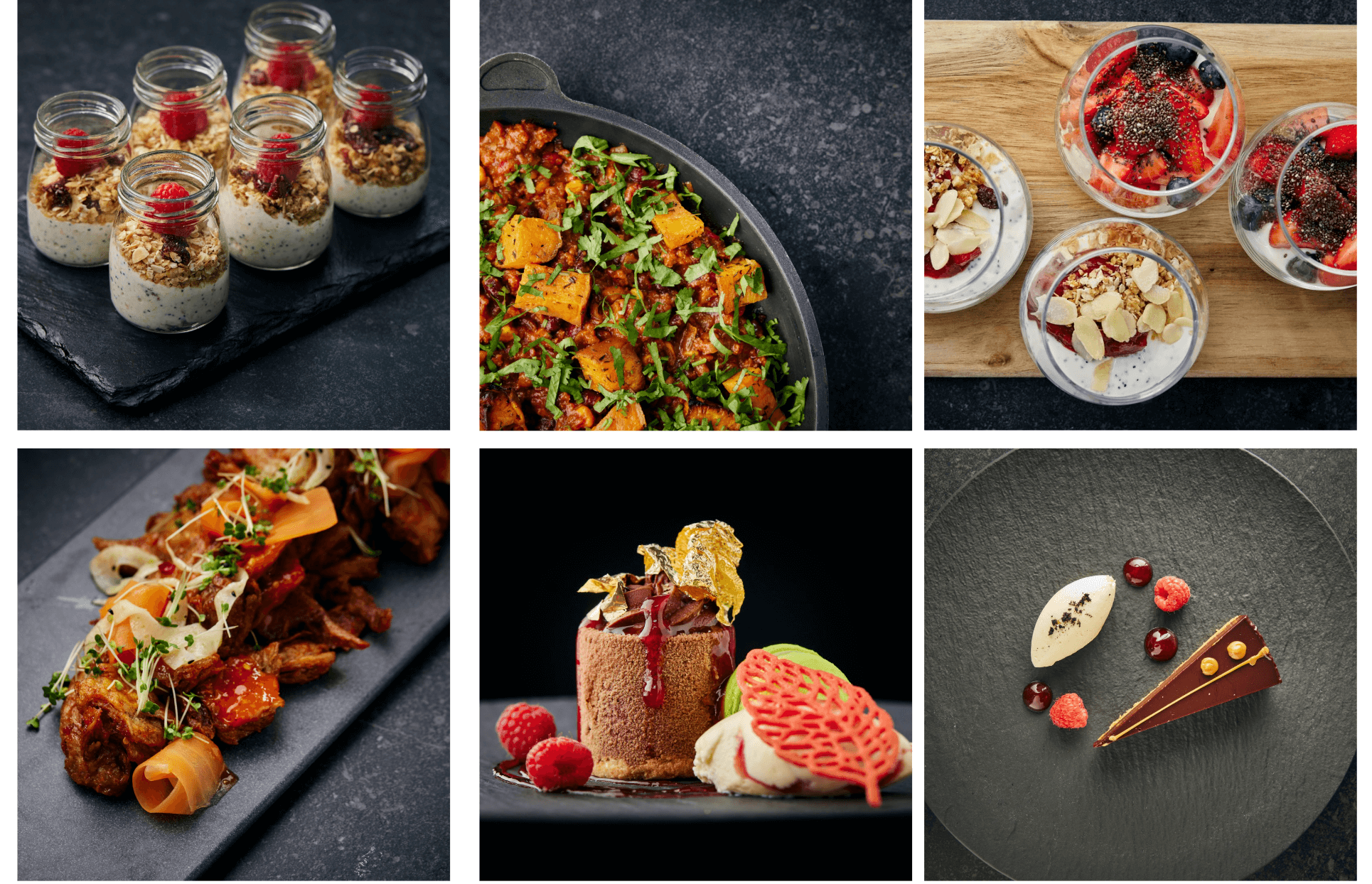In light of Sustainable Gastronomy Day 2025 (18 June) we hear from executive head chef, Gavin McDonagh, to discuss how ICC Wales is redefining the culinary experience through a hyper-local, planet-friendly lens.
As sustainability moves from trend to expectation in the hospitality world, venues across the UK are reevaluating what it means to serve food with purpose.
How is sustainability embedded in the culinary philosophy at ICC Wales?
At ICC Wales, sustainability isn’t a trend, it’s a core value embedded in every aspect of our culinary approach. Our kitchen team works closely with local producers to create menus that reflect the natural rhythms of the Welsh seasons, reducing food miles and supporting a circular local economy.
We prioritise plant-forward options, design menus to minimise waste, and continually evaluate our processes to make more environmentally conscious choices right down to composting kitchen scraps and reducing single-use packaging.
Are there any standout dishes or ingredients that represent your sustainable approach?
Yes, one standout example is our Welsh Perl Las Cheese Cromesquis, which perfectly captures our commitment to sustainability and regional flavour. This dish features mild Welsh fried blue cheese, red pepper gel, pickled fennel, and spiced beetroot, a combination that’s as vibrant on the plate as it is rooted in local sourcing.
By using seasonal vegetables and artisan Welsh cheese, we’re able to create a delicious, low-mileage dish that supports local producers and reduces our carbon footprint, without compromising on culinary creativity.
Can you share examples of how ICC Wales supports Welsh food and drink producers?
Supporting Welsh producers is a foundational part of our ethos. We source over 80% of our ingredients from within Wales, including dairy, meats, and fresh produce.
We partner with artisan suppliers and family-run farms, many of whom deliver directly to our kitchens. This not only guarantees freshness and traceability but also strengthens the regional food ecosystem.
We regularly spotlight these producers in our menus, event experiences, and delegate communications to deepen the connection between guests and the provenance of their meals.
How do your chefs approach the challenge of creating menus that are both delicious and environmentally responsible?
Collaboration with our local suppliers ensures we understand the best sustainable options at any given time. We also test and refine dishes to strike the right balance between flavour, presentation, and ecological responsibility proving that sustainable food can still feel indulgent and elevated.
How are event organisers responding to the demand for more sustainable food choices at meetings and events?
Event organisers are increasingly prioritising sustainability, and food is at the centre of that conversation. We’re seeing growing demand for plant-based and low-carbon menus, transparent sourcing, and creative ways to reduce food waste. Organisers value how we provide sustainable options without compromising on quality or experience, and many are now using our food story as part of their own event narratives to demonstrate environmental, social and governance (ESG) alignment.
What feedback or trends are you seeing from event organisers regarding sustainable food choices?
The feedback has been overwhelmingly positive. Organisers love our chef-led storytelling, our visible commitment to local sourcing, and our ability to tailor sustainable menus to diverse delegate needs.
There’s a clear trend toward more immersive food experiences that connect sustainability with wellbeing and cultural authenticity. We’re also seeing increased interest in behind-the-scenes tours or ‘meet the producer’ moments as part of the event programme.
What are your future ambitions for further advancing sustainable gastronomy?
Looking ahead, our ambition is to lead the UK events industry in sustainable gastronomy. We’re exploring regenerative agriculture partnerships, investing in hyper-local growing initiatives, and piloting data-driven food waste tracking.
We also aim to elevate guest education embedding sustainability into the delegate journey so they leave not only satisfied but inspired.
Ultimately, we want every plate served at ICC Wales to be a force for good: for our guests, for our producers, and for the planet.















